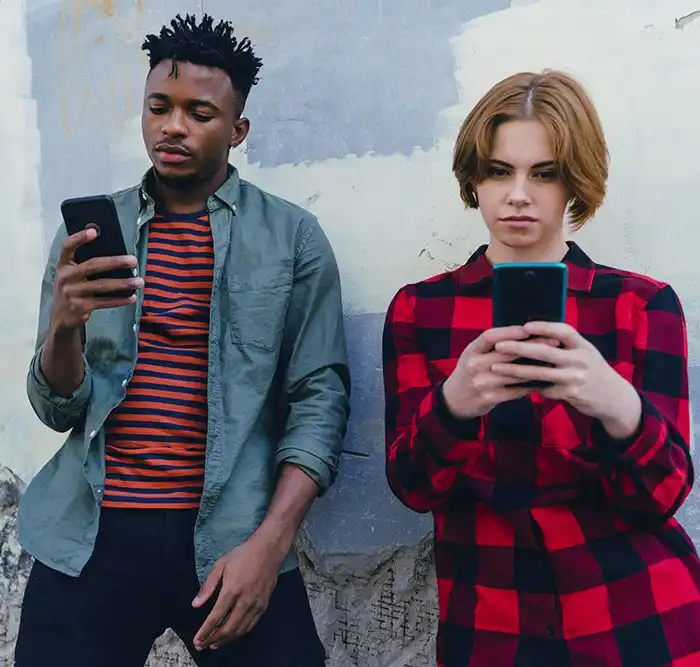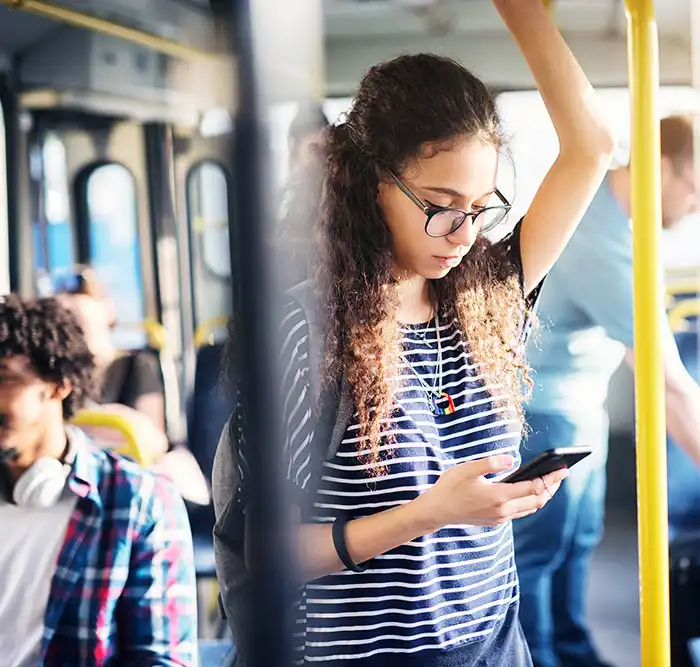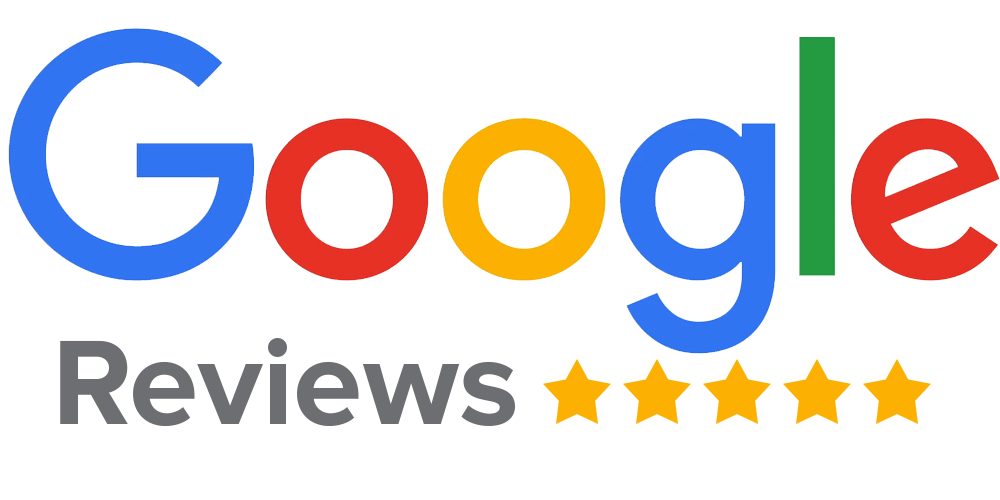
Social media has become a pervasive part of life for most people. That’s so true that you can sign up for government services with your Facebook account, connect to school and study portals with the same, and use accounts like Twitter and even TikTok to get in touch with government agencies and help lines. Social media can be an important and valuable part of life, with benefits including increased connection, better awareness of what’s going on in friends’ lives, and exposure to content that can be informative, educative, and entertaining.
Nearly everyone is familiar with the term doom-scrolling, but when is it really too much? And when do you actually need help with your social media habits? Understanding social media addiction, what you can do about it, and how professional help can get your life back on track should help.

Social media addiction is a type of behavioral use disorder classified as a “Process addiction” under the DSM-5. These addictions are very similar to substance use addictions, in that they follow the same processes, and they trigger the same parts of the brain. The person affected can react and act in many of the same ways as to an alcohol or drug addiction, but without the influence of the substance. With social media, people become addicted to getting immediate input and feedback on a social network.
That can also happen whether or not that feedback is positive or even directed at them. For example, you may develop a social media addiction because you have a lot of online friends who are always talking to you and making you feel good. On the other hand, you might develop a social media addiction because you constantly scroll through feeds and the attention and bits of reward offered by comments, videos, and images going by is enough to make you feel good for a second, leaving you chasing the next thing that does.
Explore our in-person and virtual mental health and substance abuse treatment services in Orange County at Compassion Recovery Centers. We offer a truly individualized experience for each client who enters our innovative Orange County treatment center. Discover how Compassion Recovery can help you on your journey to long-term, sustainable recovery.

Behavioral addictions stem from that process of short-term reward. If you do a thing, it produces a result. The result feels good, so you go after it again. It’s the same phenomenon behind people gambling too much, chasing sugar highs, compulsively using the gym, shopping to feel better, spending all of your time on video games, or even binge eating. You do X, get good feedback, so you do X again – even when it doesn’t result in the same feedback every time.
In fact, people are more likely to become addicted to something like social media when results aren’t predictable. People who play slot machines are more likely to continue playing slot machines if they don’t know when they will win or not – even if it means reduced payout. So, hours of scrolling and boredom followed by a sudden hit of interaction and interest might actually be more addictive than constantly getting good feedback and praise or attention online.

Eventually, you become behaviorally hooked on repeating the habit of whatever you’re doing, and you do it automatically. You think about it all the time. Then you prioritize it to the exclusion of all else. And, while it can seem odd that someone might do this with something like Twitter or TikTok, people also do it with gardening and cleaning their hands. You can become behaviorally dependent on anything that creates a sense of reward.
Most people are aware of the “Pavlov’s Bell” story, where Ivan Pavlov noticed his dog would salivate when he walked into the room – not just when fed. So, he started ringing a bell when feeding his dog. And, soon, the dog was conditioned to associate the dog with food – and would salivate in anticipation of food when the bell was rung.
Social media addiction isn’t “That” simple. However, it is the same effect of people becoming conditioned to expect stimulus and feeling good from a platform, and then chasing it no matter how hard it is to find. However, you will see impulse control problems, sensation seeking, difficulty with prioritization, stress, and lack of harm avoidance in people with social media disorder.
The person shows significant, recurrent, and persistent social media usage resulting in impairment of other life activities or distress
The individual becomes restless and irritable if they cannot be on social media
They have made repeated and unsuccessful attempts to reduce social media usage
They are frequently preoccupied with social media
Social media is used as a coping mechanism to deal with negative emotions or feeling bad
They lie about or hide social media usage
They continue using social media even if it is interfering with education, personal life, or career
They go to extreme lengths to make time to be on social media (e.g., by shirking other responsibilities or not going to a party)
In addition, the behavior must be persistent, in that it must meet diagnostic criteria for at least 12 months. However, you don’t need all of these symptoms to have a social media addiction. Instead, the DSM uses a classification symptom:
Mild
Moderate
Severe
Of course, it’s also important not to self-diagnose. If you’re struggling, going to a professional to get an assessment and help with your mental health is much healthier than attempting to manage everything yourself.
If you’re concerned that you or a loved one have an addiction to social media, there are very clear signs of the problem. However, they do vary from person to person and some people may appear to not have a problem, but, for example, may spend a lot of time using social media in private.
In any case where one activity is taking up most or all of a person’s time, attention, and energy, it’s a bad sign. If that activity is causing problems to the person, damaging their relationships, and preventing them from making healthy real-world connections, it could be an addiction.

Social media can be both beneficial and harmful. Here, benefits typically rely on moderate use, healthy interaction with the world around you, and a healthy approach to managing behavior. Here, factors like age and mental health will play a large role in social media.
For example, the Surgeon General advises that persons under the age of 16 have limited access to social media (but still access), as using social media more than 3 hours per day can result in negative side effects.
Those can include:
In addition, studies limiting the usage of social media to less than 3 hours per day showed marked improvements in depression and anxiety. In addition, reducing social media or deactivating social media for 4 weeks improved the effects of therapeutic interventions by 20-40%.
This means that social media can have a significant negative impact. However, individuals who are younger than 16 are most vulnerable. At the same time, social media is thought to have contributed to over 300,000 cases of depression in college age students. So, limited access to social media can be beneficial at every age.
Still, social media can be beneficial. It’s important not to demonize a tool, only to limit how much you access and use it.

If you or a loved one is struggling with social media use, it’s important to reach out and get help. Process addictions like social media addictions are treatable, just like any other addiction. That normally means taking a behavioral therapy approach to look at underlying causes, reasons for using social media to feel better, and ways to improve your life from a general and holistic perspective. That typically means treating the root causes, treating the symptoms of addiction, and working to develop life skills and coping mechanisms to improve quality of life.
If you need help, the staff at Compassion Mental Health is here to help. Contact us at (901) 552 3497 to discuss how our approach of individual care, personalized treatment, and home-like treatment environments can help you or your loved one through recovery.

 Peter Samarin2024-05-22This place was awesome. Josh Marquez and the staff did an amazing job of helping me realize my problems in life as to why I was self medicating and gave me a great program / regiment of daily tasks to better myself and beat my addictions. Six months in my PHP program gave me a proper reset in my life. A must go to treatment center thank you guys.
Peter Samarin2024-05-22This place was awesome. Josh Marquez and the staff did an amazing job of helping me realize my problems in life as to why I was self medicating and gave me a great program / regiment of daily tasks to better myself and beat my addictions. Six months in my PHP program gave me a proper reset in my life. A must go to treatment center thank you guys. Michael2024-05-22If it wasn’t for Compassion Recovery Centers, I probably would have died long ago. This place absolutely saved my life and taught me the skills I needed to cope with emotions and behaviors, as well as to become a productive member of society. Their PHP program in Orange County is just phenomenal, with incredibly knowledgeable staff who guide you every step of the way. If anyone is seeking treatment, I definitely recommend Compassion Recovery Centers!
Michael2024-05-22If it wasn’t for Compassion Recovery Centers, I probably would have died long ago. This place absolutely saved my life and taught me the skills I needed to cope with emotions and behaviors, as well as to become a productive member of society. Their PHP program in Orange County is just phenomenal, with incredibly knowledgeable staff who guide you every step of the way. If anyone is seeking treatment, I definitely recommend Compassion Recovery Centers! anthony pulido2024-04-05This is the best virtual IOP i have been to so far.
anthony pulido2024-04-05This is the best virtual IOP i have been to so far. Patana72024-03-30Compassion and Josh ( the owner) are fantastic. This is the only place I found that cared about the patient and didn’t treat them as another number and not a $$. They will work with you and genuinely care about your health and progress. Josh is a rare person in the industry who cares for his patients and is always available if they need anything. I’ve looked at a ton of other places. This one sticks out for all the good reasons.
Patana72024-03-30Compassion and Josh ( the owner) are fantastic. This is the only place I found that cared about the patient and didn’t treat them as another number and not a $$. They will work with you and genuinely care about your health and progress. Josh is a rare person in the industry who cares for his patients and is always available if they need anything. I’ve looked at a ton of other places. This one sticks out for all the good reasons. Tanya Adams2024-03-10Compassion Recovery Center offers a comprehensive range of addiction treatment services, addressing substance abuse with a holistic and personalized approach. Nestled in a serene setting, the center provides a conducive environment for healing and recovery, emphasizing mental, physical, and emotional well-being. The center's treatment programs include detoxification, inpatient, outpatient, and aftercare services, catering to individual needs throughout the recovery journey. Compassion Recovery employs evidence-based therapies combined with alternative healing practices, ensuring a well-rounded treatment experience. The programs are designed to foster personal growth, resilience, and long-term sobriety. The staff at Compassion Recovery is a key asset, comprising experienced professionals who are compassionate and dedicated to client success. The team's expertise and supportive approach play a crucial role in creating a nurturing environment for recovery. Patients consistently praise the staff's commitment and the genuine care they receive. Facilities at Compassion Recovery are designed with comfort and recovery in mind. Clean, well-maintained accommodations and communal spaces allow for both privacy and community engagement. The center's amenities support various therapeutic activities and leisure, contributing to a holistic recovery experience. Cost and insurance considerations are addressed transparently, with Compassion Recovery providing clear information and assistance in navigating financial options. The center accepts various insurance plans, easing the burden of treatment expenses. In conclusion, Compassion Recovery stands out for its comprehensive treatment programs, expert and caring staff, and a supportive environment that fosters healing and personal growth. For those seeking a path to recovery in a compassionate and professional setting, Compassion Recovery offers an excellent choice.
Tanya Adams2024-03-10Compassion Recovery Center offers a comprehensive range of addiction treatment services, addressing substance abuse with a holistic and personalized approach. Nestled in a serene setting, the center provides a conducive environment for healing and recovery, emphasizing mental, physical, and emotional well-being. The center's treatment programs include detoxification, inpatient, outpatient, and aftercare services, catering to individual needs throughout the recovery journey. Compassion Recovery employs evidence-based therapies combined with alternative healing practices, ensuring a well-rounded treatment experience. The programs are designed to foster personal growth, resilience, and long-term sobriety. The staff at Compassion Recovery is a key asset, comprising experienced professionals who are compassionate and dedicated to client success. The team's expertise and supportive approach play a crucial role in creating a nurturing environment for recovery. Patients consistently praise the staff's commitment and the genuine care they receive. Facilities at Compassion Recovery are designed with comfort and recovery in mind. Clean, well-maintained accommodations and communal spaces allow for both privacy and community engagement. The center's amenities support various therapeutic activities and leisure, contributing to a holistic recovery experience. Cost and insurance considerations are addressed transparently, with Compassion Recovery providing clear information and assistance in navigating financial options. The center accepts various insurance plans, easing the burden of treatment expenses. In conclusion, Compassion Recovery stands out for its comprehensive treatment programs, expert and caring staff, and a supportive environment that fosters healing and personal growth. For those seeking a path to recovery in a compassionate and professional setting, Compassion Recovery offers an excellent choice. Wise Flow2024-03-10This place Helped me so much. Best IOP program i have ever been too.
Wise Flow2024-03-10This place Helped me so much. Best IOP program i have ever been too. Christian Tanner2024-03-06If you’re looking for an IOP in Orange County, Compassion is your answer.
Christian Tanner2024-03-06If you’re looking for an IOP in Orange County, Compassion is your answer. Avi Sherbill2024-03-04A truly amazing facility that offers a high level of care for each client that comes through. I'm really moved by the work they do here and lead by example for what care for those struggling looks like.
Avi Sherbill2024-03-04A truly amazing facility that offers a high level of care for each client that comes through. I'm really moved by the work they do here and lead by example for what care for those struggling looks like. J B2024-03-03I highly recommend Compassion, Recovery. They are very ethical, understanding patient and always: above and beyond further clients. I work with this company several times. I really appreciate All their help every time it is needed. Keep up the good work.Load moreGoogle rating score: 4.9 of 5, based on 30 reviews
J B2024-03-03I highly recommend Compassion, Recovery. They are very ethical, understanding patient and always: above and beyond further clients. I work with this company several times. I really appreciate All their help every time it is needed. Keep up the good work.Load moreGoogle rating score: 4.9 of 5, based on 30 reviews
Contact us. Get help 24/7. Call (877) 414-3007 or fill out this form to request a call back.

Compassion Recovery
We firmly believe that the internet should be available and accessible to anyone, and are committed to providing a website that is accessible to the widest possible audience, regardless of circumstance and ability.
To fulfill this, we aim to adhere as strictly as possible to the World Wide Web Consortium’s (W3C) Web Content Accessibility Guidelines 2.1 (WCAG 2.1) at the AA level. These guidelines explain how to make web content accessible to people with a wide array of disabilities. Complying with those guidelines helps us ensure that the website is accessible to all people: blind people, people with motor impairments, visual impairment, cognitive disabilities, and more.
This website utilizes various technologies that are meant to make it as accessible as possible at all times. We utilize an accessibility interface that allows persons with specific disabilities to adjust the website’s UI (user interface) and design it to their personal needs.
Additionally, the website utilizes an AI-based application that runs in the background and optimizes its accessibility level constantly. This application remediates the website’s HTML, adapts Its functionality and behavior for screen-readers used by the blind users, and for keyboard functions used by individuals with motor impairments.
If you’ve found a malfunction or have ideas for improvement, we’ll be happy to hear from you. You can reach out to the website’s operators by using the following email
Our website implements the ARIA attributes (Accessible Rich Internet Applications) technique, alongside various different behavioral changes, to ensure blind users visiting with screen-readers are able to read, comprehend, and enjoy the website’s functions. As soon as a user with a screen-reader enters your site, they immediately receive a prompt to enter the Screen-Reader Profile so they can browse and operate your site effectively. Here’s how our website covers some of the most important screen-reader requirements, alongside console screenshots of code examples:
Screen-reader optimization: we run a background process that learns the website’s components from top to bottom, to ensure ongoing compliance even when updating the website. In this process, we provide screen-readers with meaningful data using the ARIA set of attributes. For example, we provide accurate form labels; descriptions for actionable icons (social media icons, search icons, cart icons, etc.); validation guidance for form inputs; element roles such as buttons, menus, modal dialogues (popups), and others. Additionally, the background process scans all the website’s images and provides an accurate and meaningful image-object-recognition-based description as an ALT (alternate text) tag for images that are not described. It will also extract texts that are embedded within the image, using an OCR (optical character recognition) technology. To turn on screen-reader adjustments at any time, users need only to press the Alt+1 keyboard combination. Screen-reader users also get automatic announcements to turn the Screen-reader mode on as soon as they enter the website.
These adjustments are compatible with all popular screen readers, including JAWS and NVDA.
Keyboard navigation optimization: The background process also adjusts the website’s HTML, and adds various behaviors using JavaScript code to make the website operable by the keyboard. This includes the ability to navigate the website using the Tab and Shift+Tab keys, operate dropdowns with the arrow keys, close them with Esc, trigger buttons and links using the Enter key, navigate between radio and checkbox elements using the arrow keys, and fill them in with the Spacebar or Enter key.Additionally, keyboard users will find quick-navigation and content-skip menus, available at any time by clicking Alt+1, or as the first elements of the site while navigating with the keyboard. The background process also handles triggered popups by moving the keyboard focus towards them as soon as they appear, and not allow the focus drift outside it.
Users can also use shortcuts such as “M” (menus), “H” (headings), “F” (forms), “B” (buttons), and “G” (graphics) to jump to specific elements.
We aim to support the widest array of browsers and assistive technologies as possible, so our users can choose the best fitting tools for them, with as few limitations as possible. Therefore, we have worked very hard to be able to support all major systems that comprise over 95% of the user market share including Google Chrome, Mozilla Firefox, Apple Safari, Opera and Microsoft Edge, JAWS and NVDA (screen readers).
Despite our very best efforts to allow anybody to adjust the website to their needs. There may still be pages or sections that are not fully accessible, are in the process of becoming accessible, or are lacking an adequate technological solution to make them accessible. Still, we are continually improving our accessibility, adding, updating and improving its options and features, and developing and adopting new technologies. All this is meant to reach the optimal level of accessibility, following technological advancements. For any assistance, please reach out to